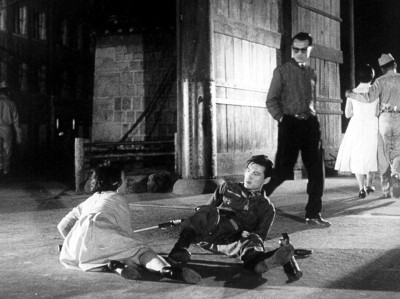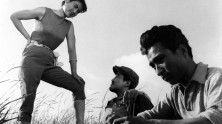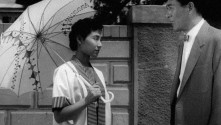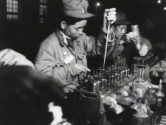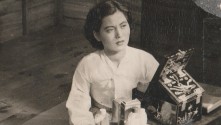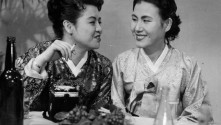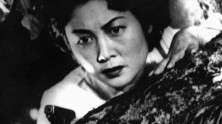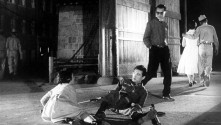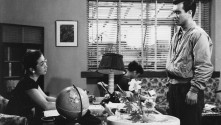
The Widow
(Mimangin)
With Yi Min-ja, Yi Song-ju, Yi T'aek-kyun.
South Korea, 1955, DCP, black & white, 90 min.
Korean with English subtitles.
DCP source: Korean Film Archive
The first female filmmaker in Korean history, Park Nam-ok only directed one film, The Widow. Even before starting her career in film as a production assistant at Chosun Film Company in 1946, she wrote about foreign films as a journalist. During the Korean War, Park worked as a member of the Korean Ministry of National Defense’s film unit and made newsreels. After the war, Park sought to fulfill her long-held dream of directing her own film, but struggled to find investors, post-production staff and distributors due to the rampant sexism in the film industry.
Shot in 16mm, The Widow centers on Sin-ja, who lost her husband in the Korean War and must fend for herself and her daughter. In addition to financial hardship, she has an uneasy relationship with her lover T'aek, who also dates another woman. The most remarkable aspect of this film is its deviation from the practice, prominent in the works of her male counterparts such as Han Hyung-Mo, of negatively depicting women freely pursuing their sexual and financial desires. In The Widow, a mother’s temptations are depicted as completely natural. Sin-ja’s choices constantly hover around her mind, represented through the combination of dissolve and crosscutting between her daughter and T'aek, yet Sin-ja does not feel remorse, knowing it is her right to live how she wants. By starting with footage from inside a car of the Hangang Bridge being rebuilt with the support of the US 8th Army, the film shows that postwar reconstruction in South Korea did not necessarily mean a total convergence into a grand narrative, but a new starting point for finding personal happiness.
